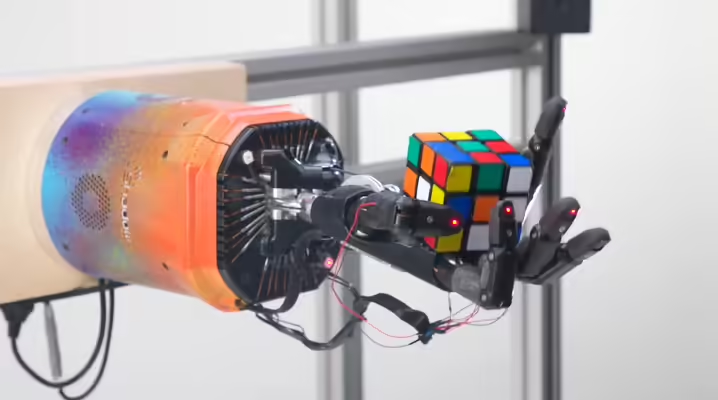December 25, 2012 - As reported today by The InformationOpenAI Insiders recently revealed that the company is exploring the development of aHumanoid Robotpossibilities.

The media outlet received this information from two "sources with direct knowledge" of the matter. However.Details on this potential project remain scarceIt's unclear when OpenAI plans to launch the bot and what its target application scenarios will be.
Currently, the few startups developing humanoid robots are focusing on two application scenarios: improving efficiency by automating tasks such as cargo handling inside warehouses, and helping consumers with household chores.
It is worth noting thatOpenAI itself is an investor in several robotics companies working on the above application scenarios.
In February, the ChatGPT developer participated in a $625 million funding round that valued Figure AI Inc. at $2.6 billion, and Figure AI's newest humanoid robot, Figure 02, uses an artificial intelligence model developed in collaboration with OpenAI to process voice commands from warehouse workers. Earlier this year, BMW tested Figure 02 at one of its automotive plants, using the robot to move metal parts.
OpenAI is also an investor in another Norwegian company, 1X, a competitor to Figure AI. 1X has developed a humanoid robot called EVE that moves on a pair of wheels and can reach speeds of up to 9.8 miles per hour (note: about 15.77 kilometers per hour). The company is currently working on a second consumer-oriented robot that is slower but can perform a wider range of tasks.
For OpenAI, partnering with startups such as 1X or Figure to develop humanoid robots could be much faster than building everything from scratch, and OpenAI's investment in the humanoid robotics space will undoubtedly help it find the right partner. Alternatively, OpenAI could use a portion of its newly secured $6.6 billion funding to acquire an existing market player.
OpenAI is no novice in the field of robotics. Until 2021, the company operated a division dedicated to developing AI models for autonomous machines, which achieved several research milestones before closing. In one project, OpenAI researchers trained a robotic arm to solve a Rubik's Cube. The company also open-sourced Roboschool, a suite of simulation tools that can be used to train robot-on-board AI software, some of which is geared toward developing humanoid robots.
If this plan ends up coming to fruition, OpenAI's foray into robotics could benefit from its rumored ongoing development work on a custom AI chip. Reuters recently reported that the company is working with Broadcom and TSMC on an inference processor. Theoretically, OpenAI could use these partnerships to commission another custom chip optimized for its humanoid robot's onboard AI software. Typically, customized processors can offer better performance than commercially available chips because they are more closely aligned with the needs of the device.